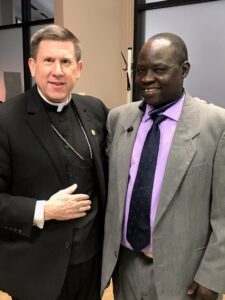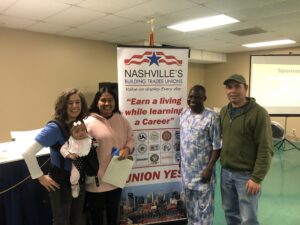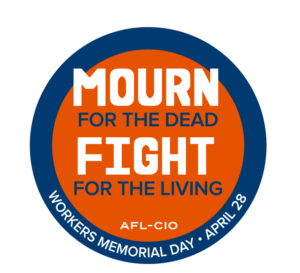St. Joseph
The Working Catholic: St. Joseph Day
by Bill Droel
Some years ago I was part of a lobby group to change the feast of St. Joseph the Worker from May 1st to the first Monday in September. The change would apply only to dioceses in the United States; the country that has Labor Day in September. The proposal got a respectable hearing from some bishops but the liturgy police (smile) at the bishops’ conference said no.
In 1889 communist and other pro-worker groups in Europe designated May 1st as International Workers’ Day. It is today celebrated as such by many people in Europe, Canada, Australia and elsewhere. To counter the communists, the Vatican designated May 1st as St. Joseph the Worker Day. Ironically, the May 1st designation is not directly related to a communist event from Europe. It commemorates an event in the U.S., specifically here in Chicago. The issue was an eight-hour workday.
Karl Marx (1818-1883) was interested in an eight hour day. When he wrote about it in 1867 he referred to the situation in the U.S. A stateside group, National Labor Union, championed the cause. Move ahead to 1886. The Federation of Organized Trades and Labor Unions obtained a City of Chicago permit dated May 1st for a rally in support of the enforcement of eight-hour-per-day laws. This event, writes William Adelman in Haymarket Revisited (Illinois Historical Society, 1986), has uniquely “influenced the history of labor in the U.S. and even the world.” What happened?
Late in the evening of the rally someone threw dynamite. Police fired their guns wildly. Soon seven officers and four workers were dead. Eight labor activists were rounded up and arrested. Those apprehended included a lay minister, a printer and others. Within about three months seven of the activists were found guilty. One was sentenced to 15 years; two others got life sentences; one was killed in jail. The remaining four were hanged in November.
The issue didn’t totally disappear. Beginning in the last months of the 19th century various unions were able to include an eight-hour provision in contracts: the United Mine Workers, a Building Trades Council in California, the Typographical Union and more. Only in 1937 with the Fair Labor Standards Act did the restriction on working hours become a national standard. Even then, however, its application was only gradually extended to various sectors.
In recent times the Illinois Labor History Society (www.illinoislaborhistory.org) has refurbished the graves of the Haymarket workers who are buried in Forest Home Cemetery, located in Forest Park, Ill. The Society has several resources related to the Haymarket event and to the meaning of May 1st.
Haymarket Square itself, located just west of Chicago’s Loop, is today home to several trendy restaurants and relatively new condos. Tourists who go there would have to know some history to understand Adelman’s contention that an event occurred there that “influenced the history of labor in the U.S. and even the world.”
Parishes in the U.S. routinely include symbols and prayers about the dignity of work during the September Labor Day weekend. It would be an enhancement, in my opinion, to also have a feast day that weekend honoring that long ago tradesman, St. Joseph.
“O God, Creator of all things… by the example of St. Joseph and under his patronage may we complete the works you set us to do and attain the rewards you promise.” – Collect from Mass of May 1st
Droel edits INITIATIVES (PO Box 291102, Chicago, IL 60629), a newsletter on faith and work.



